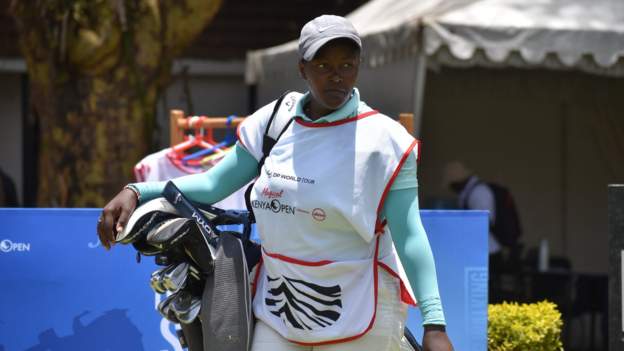Directors of cricket at all 18 first-class counties have appealed for more influence on decisions taken in the domestic game.
At a meeting on Monday, concerns over the structure of contracts given to players were raised.
The group also discussed the points system in the County Championship, overseas players and officiating.
“We feel we have lost some influence in many of the key decisions that have been made recently,” said a statement.
In an unprecedented show of unity from the directors of cricket (DoCs) or equivalent at all 18 counties, the statement continued: “While understanding the challenges of recent years, particularly recovery from Covid, we sense there has been a recent void where there was previous DoC representation contributing to the shape of domestic cricket.”
Last year, a review led by Andrew Strauss recommended alterations to the domestic structure, proposals which were called “dead in the water” by England and Wales Cricket Board chief executive Richard Gould in April.
Nevertheless, some changes were made to the regulations for county cricket at the beginning of this season.
Counties are permitted to register a maximum of four overseas players at the same time, up from two.
In the County Championship, points awarded for a draw has been cut from eight to five, while batting bonus points are now only awarded after a team reaches 250 in their first innings, compared to 200 previously. It is understood these changes was not supported by the DoCs.
“We would like to propose that the DoCs have a representative to sit on any future performance committees or other appropriate working groups,” said the statement.
In the meeting at The Oval, the DoCs agreed the most “significant” matter arising is the need to review contracts given to players by counties, amid the rise of franchise leagues across the globe.
Contracts signed by county players allow them free movement between the months of October and March to play in global leagues. Some 74, a number that does not include centrally contracted England players, took part in at least one major league over the past winter.
From April to September, domestic players need permission from their county and often pay a percentage of their franchise salary to the club.
It has been suggested that counties are given greater flexibility to offer white-ball players shorter contracts to only cover the period of a tournament such as the T20 Blast.
In an interview with the Guardian on Monday, Professional Cricketers’ Association chief operating officer Daryl Mitchell warned against such a move, saying: “If you start to send players down the freelance route and out of our competitions, that’s a real risk to the game. It will create more white-ball specialists and could have a detrimental effect on the red-ball game and the Test team.”
However, the county DoCs point to a drain on their facilities and medical and coaching resources from players who are leaving to represent other teams.
“The current arrangement leaves the clubs with little control over their players movements in the off-season,” said the statement.
“This often leads to increased medical and staffing costs to ensure players are suitably prepared and rehabilitated, and there is clearly now the need for more flexibility in this area to suit both clubs and players. “The number of players involved in winter tournaments has risen exponentially and this is becoming a very real challenge for all involved.”





















